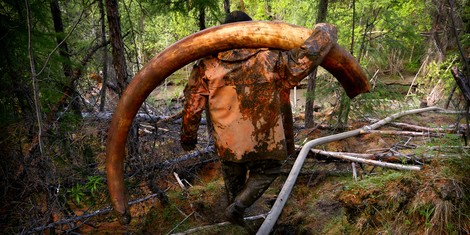Your podcast discovery platform
Curious minds select the most fascinating podcasts from around the world. Discover hand-piqd audio recommendations on your favorite topics.

piqer for: Globalization and politics Global finds
I am an Australian freelance journalist focussing on conflicts, politics, and warzones around the world. I have been working as a journalist for over 5 years, having reported from Australia, Germany, China, Egypt, Palestine, and Ukraine. I am especially interested in the way that new technologies are being used in conflict zones in unexpected and often disturbing ways. During my time working as a journalist, I also co-founded open-source war reporting site Conflict News.
The Mammoth Pirates
The gold rushes of the late 19th century became the things of legends, not so much for the few people who struck it rich, but for the thousands who endured massive hardship just to come home empty-handed. Fast forward to 2017, when, in the far reaches of Siberia another such "rush" is ongoing – but it is something far more exotic than gold which is being sought: mammoth ivory.
The last woolly mammoths died out several thousand years ago, but for tens of thousands of years before that, they roamed the Eurasian steppe, living and dying in massive herds. Some of these were preserved in the region's permafrost, and entombed with their decaying bodies were their gigantic tusks. With elephant ivory becoming more and more scarce (and unpopular), these tusks represent a "new" and seemingly more ethical source of ivory.
Fuelled by huge demand in East Asia, each tusk found is worth tens of thousands of dollars, and those who get lucky can earn staggeringly large amounts of money in a short period. This, in turn, has lead to hundreds of people spreading out through Siberia to illegally mine for these prehistoric tusks. Using massive pumps, they blast away sections of the landscape in the small hope of finding ivory, but like in ages past, most go home poorer than they began.
Working for Radio Free Europe/Radio Liberty, journalist Amos Chapple gained exclusive access to these clandestine operations. Through photos and interviews, he tells the stories of the impoverished people forced to ply this trade and the often appalling conditions in which they live. He also shows the massive environmental damage their operations are causing, and how this "ethical alternative" is seemingly no better than the poaching trade it replaced.
Stay up to date – with a newsletter from your channel on Global finds.
